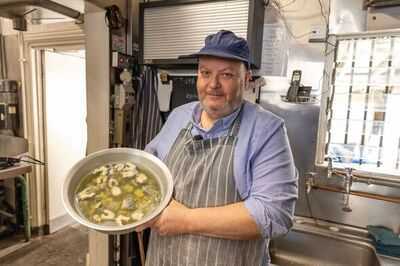
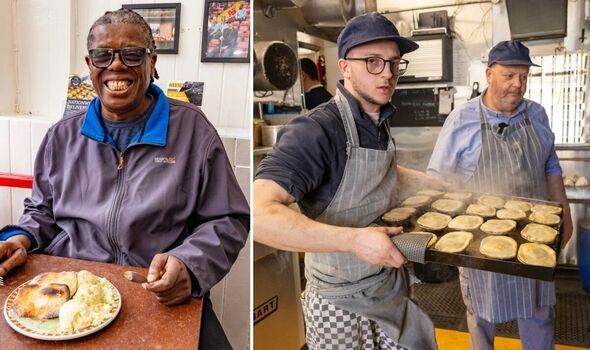
On a good day, Noted Eel and Pie House in Leytonstone can sell up to 1,000 pies, with queues stretching out of the door. A "sold out" notice is kept just inside the entrance to the , which sometimes has to be put up at the weekend. A few hours before delivers her Spring Statement, Piter Hak, 62, and his son Alfie, 27, are putting the lids on rows upon rows of mince-filled , which will shortly be placed inside their 64-year-old oven, a sight replayed countless times over the decades.
But this continued success is not enjoyed by other venues. Estimates suggest that there were around 300 pie and mash shops operating in London in the mid-19th century, providing a cheap, filling meal to workers. But, today, the Pie and Mash Club says there are fewer than 40 in the city. Some businesses are also serving their own versions of the dish in Essex and Kent as Cockneys flee deindustrialisation and gentrification. The club lists 73 across the UK in its , and one even in Australia.
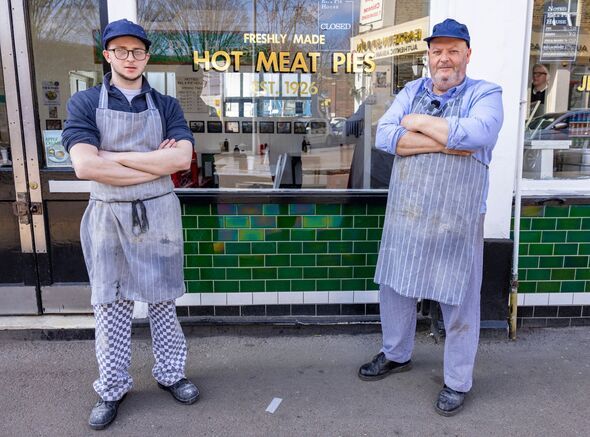
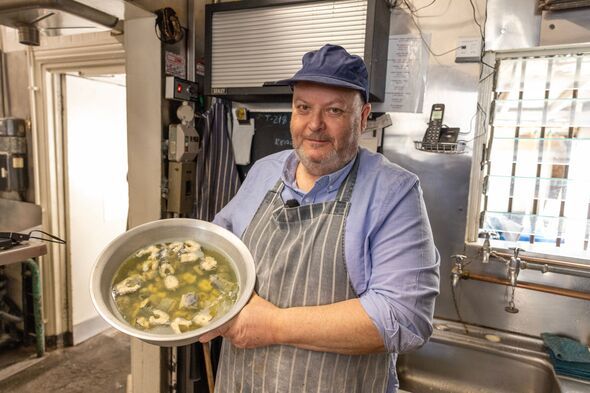
Piter calls gas and electric bills the "real killer" for shops and he has been forced to put up prices. "You get people coming and saying, 'That's a lot of money. That's gone up.' But we only put it up once a year to try to cover the costs. The problem is, if you put 20p on a four pound meal, people notice because they come here for the cheap meal. The bigger restaurants can cover these costs. At the moment, we're not doing that." The cost of living is also making things difficult. Piter says: "There always used to be a saying in the pie and mash game: 'Pie and mash is great when there's a recession'. I don't believe that now. People will still go out on birthdays and spend a lot of money in Miller and Carter and places like that, but I think they do bring their purse strings in a little bit tighter."
Parking restrictions are also a problem, and Mr Hak highlights a "lack of interaction" from local councils. He is paying out £2,000 a year for permits for three cars to be parked in the street. Customers are also being "deterred slowly" because of local restrictions.
A lot of the shop's customers have moved to the likes of Essex or Norfolk, but some occasionally return with their children, who Piter has watched grow up over the years. Noted's location, near the M11 and A12, helps with this. Although, shops deeper into the centre of London find it more difficult to attract patrons in cars. "People might have two dozen pie and mash," Piter says. "They can't carry it out on the train."
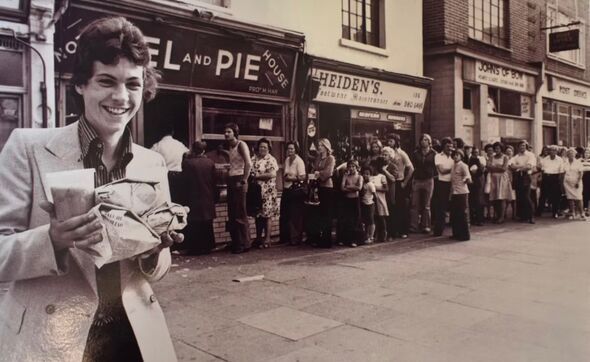
When asked if there were fewer Cockneys around these days overall, the businessman says the demographic has definitely changed. "But I sometimes think that's a good thing," he adds. "I don't look with rose-tinted glasses at 40 years ago. Things have changed, times have changed. I remember my dad saying to me, 'Oh, it's all changing'. This was in the 70s, but he was going back to what it was like during the war. I used to say, 'Well, everything's got to change.' And now I'm realising that myself. My son's changing everything. He's slowly bringing things to the 21st century, which I probably couldn't have done." He adds: "We get a lot of eastern Europeans, we get a lot of foreign people coming in and trying it, and they come back. It's never going to be a spicy, in your face meal like a curry or a kebab.
"It's a fairly mediocre meal in the respect that it's not got these flavours that are heavily spiced." Piter thinks the number of pie and mash shops operating in London is down by two thirds compared to 20 years ago. This is due to places losing their customer bases, and the rents and the rates being cheaper in towns outside the capital. "London is absolutely terrifying," Piter says. "The amount that we pay in rates and rent at the moment."
When asked about his opinion on Chancellor Rachel Reeves's record so far, Piter warily says: "I have to be careful what I say. We're not sure what this [spring] statement is going to be. We're obviously spending more on defence, and the money's going to come from somewhere. It seems that a lot of people who come in here are on benefits, and have been moaning quite a lot saying they're going to be worse off."
He adds: "The worst thing I would say is putting the employer National Insurance contributions up. Not only putting them up, also reducing the wage someone has to earn before the employer has to pay the contributions. A lot of my staff have got kids, and they work part-time, and the problem is that they're now going to be dragged in." Piter also expresses concern about taxes on farmers, and the knock-on effect this could have on his suppliers at Smithfield Market, whose produce, including Scottish beef, is already costing him a fortune. They have already told him that their prices are increasing in two weeks' time, costing him potentially another £250 a week, which is nearly £15,000 a year. "A lot of farmers are in debt," the businessman says. "It's a business like this.
"My dad always said to me, 'It's not what the business is worth. It's what you put into it."
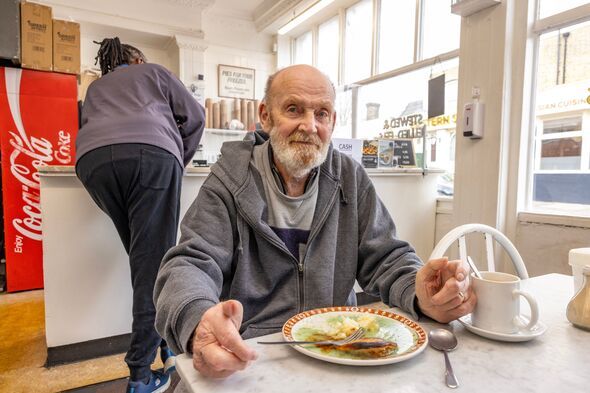
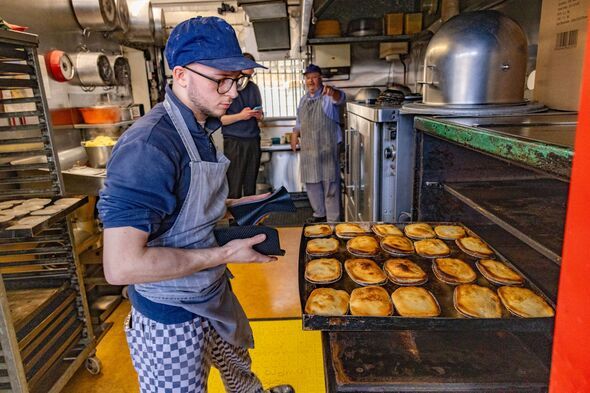
Picking up an order for him, his mother and a neighbour is Darren James, 43, a painter and decorator. He says before heading out the door: "We always come here because it's the best pie and mash around. It's an old East End meal, it's really appetising and filling as well. You do get the odd pie and mash shop opening in places like Essex, but you can't beat the old East End one. I wouldn't want to see it dying out."
One of London's oldest pie and mash shop served its last customers on Saturday after 116 years. Harrington's in Tooting has been run by the same family ever since, but is closing as running costs rise. Owner Bev Harrington, 54, started working in the shop aged 12. She says: "Years ago you'd get your regular customers and it's just not like that any more, you don't get those regulars.
"Tooting has changed dramatically over the years and it's nothing like it used to be really, it's dirty and there's rubbish everywhere." Bev's energy bills have risen by hundreds of pounds since, and dealing with this has "crucified" her mental health. She too describes the negative impact parking restrictions have had, as well as Sadiq Khan's infamous ULEZ scheme. "We've probably lost older customers because they've passed away but also they can't afford to replace their car because it's not ULEZ compliant," the businesswoman says. "They can't afford the £12 to come in."
Harry, 94, frequented the shop as a young boy and took his son, Chris, for the first time at a similar age. Chris, now 66, says it is "the end of an era", and that he expects more pie and mash shops to go the same way. "It's getting too expensive to survive in this country, everything's gone through the roof," he says. "With Rachel from Accounts running the country, we're in trouble. Everyone knows that if you hit businesses then they don't take on people, and that's what's happening." Tony Sedgewick, a black cab driver, has been a patron at Harrington's for 54 years, following in the footsteps of his parents and grandparents. While working, he befriended 90-year-old passenger Eileen Bastin while discussing their shared love of pie and mash. The pair began to visit the shop once a week in the cab to eat together.
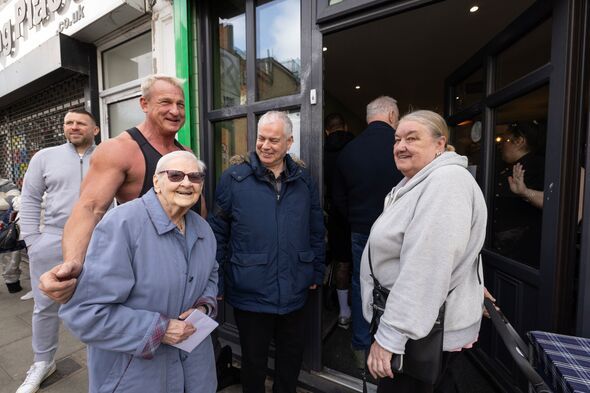
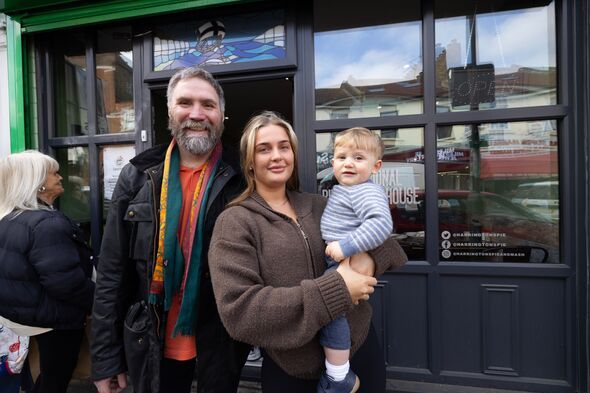
Tony says: "On the last day, I've asked to be the last person they ever serve a pie and mash to." The Cody family has four generations round the table, including Reuben who is just 11 months old. His grandad, William, says: "Reuben is the sixth generation to eat here, my great-nan used to come here first. He ate the whole lot, pie, mash, everything."
Another first-time diner was baby Toby, whose mum Hayley, 38, has been a Harrington's customer "literally from birth". When she heard the shop was closing, she was "shocked". "It's got a great reputation and it's good food, I'm sad," Hayley says. "It's nostalgia, it doesn't compare to any others I've had." Some customers reflect that Tooting has changed and the core of working-class London has been hollowed out. David Tanner, a retired oil and gas engineer, says: "The community around here isn't probably as English now, I don't imagine they would eat this." When the 70-year-long patron of Harrington's was younger, pie and mash was "a staple diet" and "a cheap and filling meal".
From behind the counter of his pie and mash shop, Barney's, which he opened in 2018, stands Tommy Barnard, 47. The newcomer is quite an oddity in the capital these days, as he says it can be tricky to get a new pie and mash shop to take off, as customers can be "loyal". But the former plumber emphasises that they are still vital parts of communities. "You get different people in here that don't even know each other, and they put the world to rights. You don't get that. It's lost. If you go into a café, everybody's on their phone. What goes on out in Essex and Kent, that's their business. Here, London pie and mash shops need to stay. It's a must." He adds: "The Government has to get behind it, they have to back these shops. If the pie and mash shop goes, that's like the London bus going, it's like the London taxi going. It's like Big Ben being pulled down. It's a part of your history. If you can't maintain that and look after the people that are here, what hope have we got?"
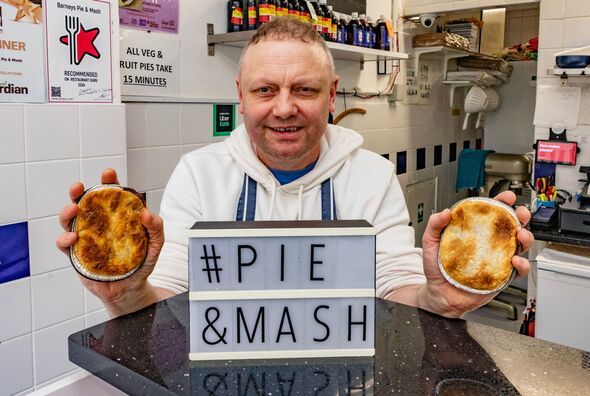
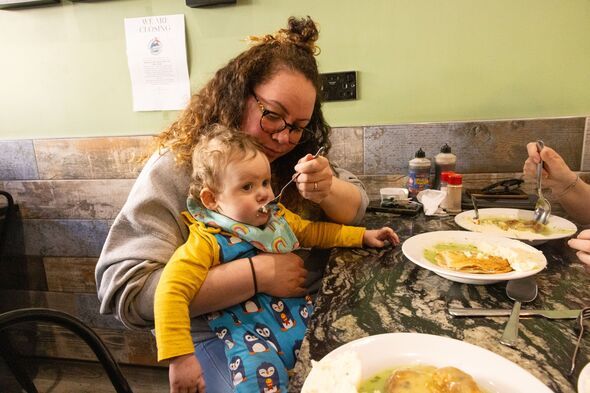
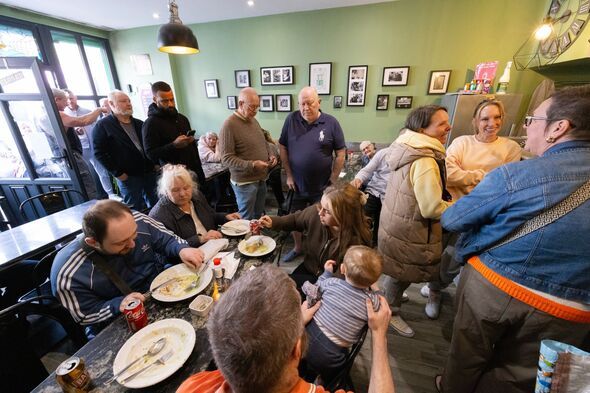
Andy Green, a part-time university lecturer, still speaks in a very strong Cockney accent despite moving to Barry Island from Poplar in 1977. He is campaigning to make pie and mash a protected dish. The campaigner fights back against the prevailing depressing narrative, telling the Express: "There is a media narrative that pie and mash is 'dying'. But, in reality, it's evolving, with different trends at work of geographical spread but also greater appreciation of its artisan quality and heritage." Nevertheless, he suggests websites "should be saying no trip to London is complete without a trip to a pie and mash shop". But at the moment, he says, you go to websites and it's got a section on pies, and out of 10 places listed only two are pie and mash shops. "At the moment, they've only got the same status as a fried chicken shop," Mr Green says.
"I think there's increasing recognition of pie and mash being an artisan product. You're not buying something that's coming from a factory. There's a trend of people recognising its inherent quality. Yes, there's a trend where they follow the traditional customer base to Essex, Kent and Hertfordshire, but also within London, with places like Manze's and F. Cooke's in Hoxton, they're like tourist places now. They're fulfilling this idea of it being London's indigenous food."
Back at Noted, Alfie, who will shortly be taking the reins, says: "You can't really put up the price of pie and mash. It's a cheap meal, we only charge £4. We gradually put it up every year. But I think probably next year we might have to add on 20% or something like that, and just hope people understand why we are doing it. But, when you look at what you're getting for it, you can't complain, I don't think." The Gen Z businessman has established the shop online. "I feel like in the last sort of six, seven years, it's become quite a trendy food," Alfie says. "We get a lot of young people coming in and taking photos of their food, or making videos of it. You can go to McDonald's or somewhere like that and probably get a cheaper burger, but it's not freshly made on the premises."
Hopefully, rather than disappearing entirely, pie and mash shops can be saved from extinction but a little bit more help from the government, local councils and tourist boards would make things so much easier.